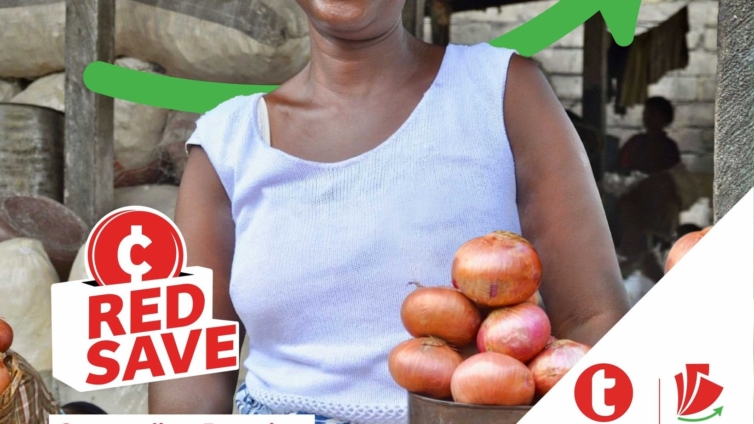
Audio By Carbonatix
Telecel Ghana has acknowledged a GH¢2 million legal claim filed against it by Madam Faustina Djagbele Abbey, an onion seller from Makola Market, concerning the alleged unauthorised use of her photograph in a promotional campaign for the 'Telecel Red Save' product.
The telecommunications giant, operated by Ghana Telecommunications Company Limited, issued a press release today, Thursday, June 19, stating it is actively reviewing the matter.
In its statement, Telecel Ghana confirmed it has "become aware of media reports of a legal claim filed by Madam Faustina Djagbele Abbey alleging the use of her photograph without her consent in relation to our Telecel Red Save product campaign."
The company emphasised its commitment to ethical practices in its operations.
"We wish to assure the public that we take matters of privacy, imagery consent and intellectual property seriously," the statement read.
This comes amidst a broader national and global conversation about data protection and individual rights in commercial advertising, especially in the digital sphere, where images can be widely disseminated.
Telecel concluded its statement by appealing for patience as the legal process unfolds.
"We appreciate the public’s understanding as this process runs its course," it said.
The lawsuit, filed by Madam Abbey on May 23, 2025, through her legal counsel Bernard Owiredu Donkor of Thompson Law Consult, claims that Telecel utilised her image on various platforms, including social media, to market its 'Telecel Red Save' digital savings product without her knowledge or permission.
Madam Abbey alleges that this act constitutes a breach of her privacy and personal liberties, as well as an abuse of her image rights.
The legal action highlights the potential impact of corporate advertising on individuals, particularly those whose images are used without consent.
Madam Abbey's statement of claim details that the widespread advertisement led to her family and customers mistakenly believing she had come into significant wealth, resulting in strained personal relationships and a negative impact on her mental health.
The case underscores the increasing importance of obtaining explicit consent for the use of personal likeness in commercial ventures, particularly for major corporations like Telecel Ghana, which serves millions of subscribers across the country.
Latest Stories
-
‘Don’t put the President on the spot’ – Fifi Kwetey rebukes Majority over OSP Bill
46 minutes -
‘There is no conspiracy by NDC’ – Fifi Kwetey explains OSP Bill fallout after presidential intervention
57 minutes -
Nigeria allege DR Congo ‘fraud’ as they hunt World Cup reprieve
1 hour -
Alcaraz announces shock split with coach Ferrero
2 hours -
Two held over viral assault on minor
2 hours -
The Oscars to leave ABC and stream on YouTube starting in 2029
2 hours -
Starmer tells Abramovich to ‘pay up now’ or face court
2 hours -
FIFA video game to return after four years in Netflix exclusive
3 hours -
Ghana’s programme performance has been broadly satisfactory – IMF Board
3 hours -
Former chancellor George Osborne joins OpenAI
3 hours -
No bank has been cited, sanctioned by any regulatory or law enforcement agencies – Association of Banks
3 hours -
Ghana’s GH₵10m relief support to Jamaica grounded in compassion and solidarity – Ablakwa
3 hours -
Speaker, Ga Mantse to headline GJA Dinner Night
3 hours -
JoyNews to host National Dialogue on declining adherence to standards on Thursday
3 hours -
Newmont to fully fund 13 kilometers Ntotroso–Kenyasi road in 2026
3 hours

